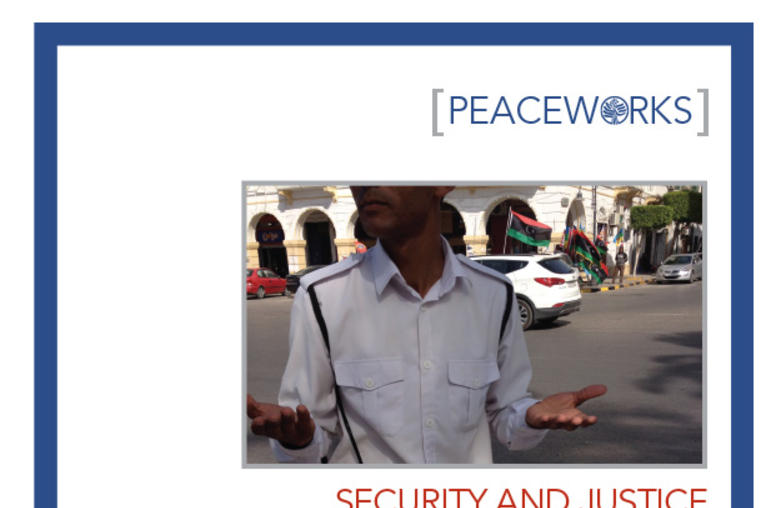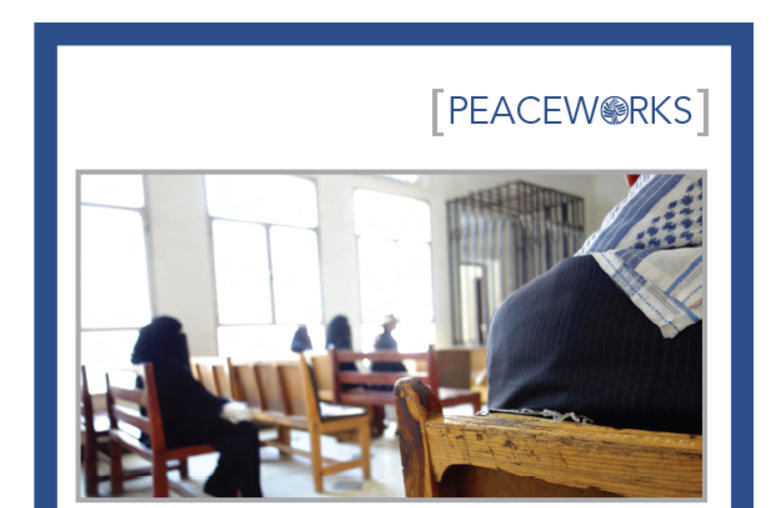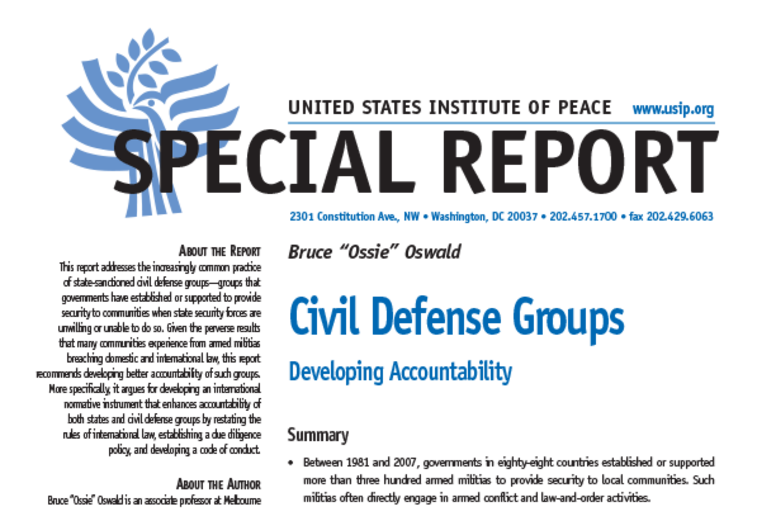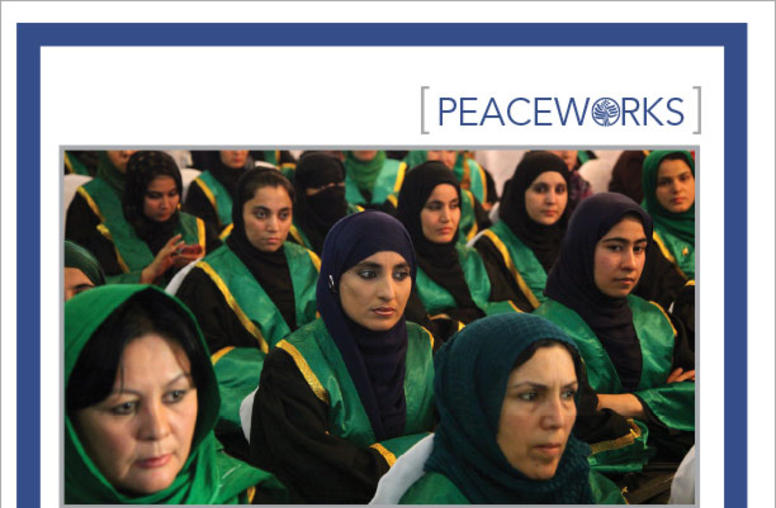The Balkans: From War to Peace, From American to European Leadership
Congressional Testimony by Dan Serwer, director of the Balkans Initiative.
Even as attention and resources in Washington are going to the conflict in Iraq, the Balkans continue to represent a significant investment by the U.S. Government and a model of American and European cooperation. Over the past decade the United States has spent upwards of $24 billion in the peace effort in the region, and that investment needs to be protected, particularly as U.S. efforts are focused elsewhere. Today, as the Balkan countries transition themselves into democratic states, the leadership of the European Union is critical. The United States, with vital interests in the region in regards to the war on terrorism, must continue to play a leading role on a few key issues, but can safely hand a majority of the tasks to the European Union.
On April 10, 2003, Daniel Serwer, director of the Balkans Initiative, testified before the U.S. House of Representatives Committee on International Relations, Subcommittee on Europe on "The Balkans: From War to Peace, From American to European Leadership."
The following is a summary of his statement made before the committee. The views expressed below are those of the author, not the U.S. Institute of Peace, which does not take positions on policy issues.
Mr. Chairman, let me first express to you my appreciation for holding this hearing on the Balkans, even while Washington's attention is focused elsewhere. The United States Government has invested upwards of $24 billion in Balkans peace over the past decade, a substantial amount even if it will be dwarfed by spending in Iraq. We need to protect our investment and ensure that it pays dividends to the American taxpayer.
There are two important transformations occurring in the Balkans today. The first is a transition away from nationalism, dictatorship and war towards peace, democracy, and a European future. The second is a shift of responsibility from the United States, which led the Bosnia and Kosovo interventions as well as the fight against Milosevic, to the European Union (EU), which shared leadership with the United States in bringing peace to Macedonia and ultimately must lead the process of European integration for all of the Balkans. The objective of U.S. policy should be to ensure the success of both these processes.
From war to peace
Let me talk first about the transition within the Balkans. We have seen marked progress in the last several years, especially in Croatia, Romania, Bulgaria and Albania. These countries are leading the region towards NATO and the EU by concerted efforts to meet the membership requirements. I might fault each for shortcomings, but their leaderships are trying to match actions to ideals. I will not catalogue current problems in the Balkans, which lie principally in Serbia, Kosovo, Macedonia, and Bosnia. I want instead to focus on those that require continuing U.S. engagement. Solve these few, and we can turn over leadership to the Europeans without endangering our investment.
First among the problems requiring U.S. attention is reform of the security sector in Serbia. It is all too clear in the aftermath of Prime Minister Zoran Djindjic's tragic assassination that it was a mistake to leave in place the network of criminals, security forces, businessmen, and politicians that had been the backbone of the Milosevic regime. I do not agree with those who say the United States pressed the Serbs too hard, or that Zoran would be alive today if we had ignored the issue of war criminals. The crackdown that the Serbian government is now pursuing, using extraordinary emergency powers, should have occurred immediately after the overthrow of Milosevic in October 2000. Even as it looks forward to a Serbia that meets the highest human rights standards, and warns Belgrade to avoid using emergency powers as a political tool, the United States can and should support a limited crackdown as well as the essential follow-on measures: deep reform of the police, army and security services. We should be prepared to expand significantly the $110 million or so in assistance that we provide to Serbia, focusing the additional effort specifically on reform of the security services and the rule of law.
The second problem requiring U.S. attention is the final status of Kosovo. By the end of this year, the head of the UN Mission in Kosovo, Michael Steiner, will have turned over all but a few powers to the Provisional Institutions of Self-Governance, in accordance with the provisions of Security Council Resolution 1244. He will also have succeeded, I believe, in opening a dialogue between Belgrade and Pristina on non-status issues of importance to both Serbs and Albanians. Before his death, Zoran Djindjic had called for immediate talks on final status, in order to avoid damaging the prospects for Serbia's reform factions at the polls as well as Serbia's prospects for a closer relationship with the EU. The Kosovar Albanians, for their part, want independence and will not sit still forever in an international protectorate.
The U.S. Government, in concert with European governments, has so far tried to postpone consideration of final status indefinitely. The administration rightly claims that Kosovo has not yet met all the standards the United Nations has set as preconditions. At this point the crucial standard is treatment of Serbs and other minorities. The United States should use all the influence deriving from its special relationship with the Kosovar Albanians to convince them that they must allow Serbs and other minorities to return to their homes securely, worship in their churches without risk, and travel throughout Kosovo without harassment or threat. If this happens, final status talks should begin.
It will be difficult to postpone the opening of talks beyond 2004 in any event. The United States needs to ready itself for a decision on Kosovo final status. Continuing refusal to face this issue will put the US behind the curve, creating serious risks of unrest and instability. Europe cannot be expected to proceed on Kosovo final status without the United States.
The third main issue on which the United States needs to focus is establishment of the rule of law throughout the Balkans. This requires transfer of those indicted for war crimes to The Hague. Paddy Ashdown, the international community's senior agent in Bosnia, has made justice his first priority, but unless Karadzic and Mladic are captured no one will believe it. Nor will it be possible to withdraw U.S. troops.
Rule of law goes far beyond the question of war criminals and touches vital US interests, such as ensuring there is no Balkans haven or transit point for international terrorists. A significant percentage of the drugs and arms reaching Europe pass through the Balkans and enrich its mafias, and until recently Serbian and Bosnian Serb companies were supplying Iraq with weapons. Terror, drugs, and arms will be permanent US interests in the Balkans, and it behooves us to invest in building up the institutions required to meet our own security objectives.
Let me make clear what I think we could do less in the Balkans. I do not believe the United States should engage heavily on economic reform and development—the resources available to the U.S. Government in this area are minimal, and the IMF, World Bank, and the EU are vastly better equipped and funded. Likewise, social welfare concerns—while all too real and important—should fall to others. Most of the state-building function, while vital because the Balkan wars were due in large part to weak states, should fall to the EU, which will want to shape Balkan states in a European mold. Last but not least, we should look to NATO for leadership on military reform, and play a role when needed through NATO or in bilateral activities that complement NATO's efforts.
From U.S. to European Leadership
Let me turn to the transfer of leadership to the Europeans, who failed in the Balkans a decade ago but now have another opportunity. Today's Europe is better prepared. It has fielded an excellent team: in addition to Ashdown in Bosnia and the Steiner in Kosovo, Javier Solana, Chris Patten, and Erhard Busek in Brussels. Europe has footed most of the bill for the Balkans, and provides most of the troops—now about 75 versus 15 percent for the US. European Foreign and Security Policy, while a shambles on Iraq, persists in the Balkans, as does successful European-American cooperation.
The problem Europe faces is not in my view its admittedly limited military capacity, or even its reluctance to use it. There is no military challenge in the Balkans today that the Europeans cannot handle. The real problem is credibility. Especially the Albanians, but also the Serbs and Bosnians, show little respect for the Europeans, even though they pay the bills and even though the ultimate goal for all the peoples of the Balkans is integration within Europe.
In order to make the vision of a future within Europe more credible, the European Union needs to stop treating the Balkans as a distant region that needs to be stabilized and begin to view it as a neighboring area into which the EU intends to expand. This shift has already occurred for Romania and Bulgaria, but not yet for the Western Balkans. Current EU plans call for a steady decline in assistance to the Western Balkans through 2006, to half the level provided in 2000. As pointed out by the European Stability Initiative, the EU has an opportunity at its Thessaloniki Summit in June to reverse this decline and begin to provide the Western Balkans with the kind of structural assistance that has worked so well to accelerate economic development in other laggard areas of Europe. This shift would greatly enhance the credibility of the EU and spur the countries of the Western Balkans to serious reform efforts.
But the issue of credibility is not only one of resources and vision. Europe lacks common purpose and unity of command and control. It is easy to play the Europeans off against each other. To the extent they can agree among themselves, the positions they take are often the lowest common denominator. Rarely are they able to deploy all the levers of their considerable power to achieve a clear result, as Solana did—perhaps unwisely—when he forced Montenegro to stay in a confederation with Serbia. More often, they find it difficult to coordinate their economic, political, diplomatic, and military instruments so as to achieve a clearly defined objective. Seldom do they even try.
The next test for the Europeans is Macedonia, where they have taken over the military task from NATO. The prospects are reasonably good, mainly because the Macedonian and Albanian participants in the new government seem determined to fulfill their commitment to the peace process and at the same time to confront the crime and corruption that are the greatest threat to the country's viability. Europe needs to focus on making Macedonia a success. Once that has been achieved they can and should take over the military mission in Bosnia, assuming the war criminals are in The Hague and NATO has the vexing problem of unifying the Bosnian armed forces on its way to resolution.
Conclusions
Before concluding, I would like to address two important policy questions:
- What should the United States do about the conditions for its assistance to Serbia in the wake of Zoran Djindjic's assassination?
- What should the United States do about the final status of Kosovo?
My Serb friends are looking to the United States for help and support in the aftermath of the assassination. We should certainly give them all the assistance we can, not only in tracking down the murderers, but also in cracking down on the underworld whose dirty work they did. The new prime minister has made clear that he intends to pursue the reform direction mapped out by Djindjic. In fact, the Serbian government is seizing the opportunity to accelerate reform of the police, military, and judiciary. The logical outcome is arrest and transfer to The Hague of indicted war criminals. The only question is how quickly this can be achieved. We should not, as the Council of Europe has done, drop the conditions or water them down. At most the Administration should consider whether the new Serbian government has had sufficient opportunity by the June 15 deadline to do what it knows it must do. The Administration should use the time between now and then to achieve a greater degree of coordination with the Europeans, who provide more benefits to Serbia and have substantial influence if they choose to use it.
My Albanian friends are looking for the United States to support Kosovo independence. It has to decide whether it will do so, if not which other solution it will support, and how any proposed solution will be sold to both Serbs and Albanians. While it is clear enough that the Security Council will have to bless a decision on final status, the United States has to decide in what forum it wants the issue to be negotiated and who will lead the effort. A strong U.S. mediator, possibly teamed with an EU counterpart, is crucial. The United States also has to make it clear to all concerned that a decision on Kosovo final status will not be allowed to affect the sovereignty and territorial integrity of Bosnia and Macedonia, where much of our decade-long investment in the Balkans lies. And it has to insist on protection of Serbs and other minorities, as a precondition to a decision on final status.
We are today more than midway in the two transitions occurring in the Balkans: closer to peace than war, and closer to European than to US leadership. The right way out of the Balkans is to finish the job, withdrawing US troops only after the essential remaining tasks have been accomplished: security sector reform in Serbia, a decision on Kosovo final status, and transfer to The Hague of the indicted war criminals.
The views expressed here are not necessarily those of USIP, which does not advocate specific policy positions.



